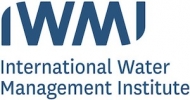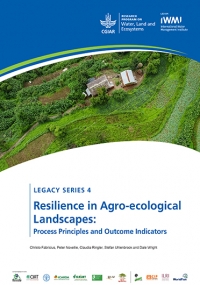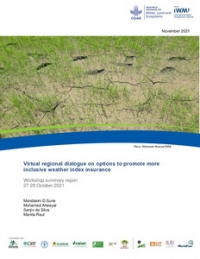Large scale irrigation projects based on water lift from the rivers to highlands are un-sustainable under emerging new climate and water availability conditions. These pump stations were installed in past in 1960-1970s without consideration of economic sustainability and environmental impacts. They lift much more than required for productive transpiration by crops and form high return flows and pollution of river systems. These lift irrigation schemes cover more than 50% of the irrigated land of Uzbekistan, 46% in Tajikistan and wide-spread in Kazakhstan and Kyrgyzstan. Irrigation systems of Bukhara region, Karshi steppe and northern Tajikistan are the examples of such development. Water supply of those systems is energy intensive and reliable energy supply is challenging issue in those sub-basins. These energy intensive and low water use efficient lift irrigation schemes affect ecosystem services downstream. The objective of this project are twofold: (1) to enhance the provisioning services and of the ecosystem in lift irrigation schemes of Central Asia; (2) sustainable intensification of water management in lift irrigation scheme areas based on healthy functioning ecosystems with minimum return flow to the natural watercourses. Specific objectives are: examining changes of return flow quantity and quality. The return water quality (TDS) will be estimated under lift canal and groundwater irrigation. The project will closely work with the TajikGiprovodhoz Institute, responsible for designing and modernizing the lift irrigation schemes. The institute staff will be involved in the project and the schemes modernization strategies will be developed to achieve the objectives of the project. Ecosystem services will be estimated with and without modernizing of the schemes. Discussions with the Ministry of Energy and Water Resources will continue to promote groundwater development within lift irrigation schemes. Findings of the study will be shared with the Ministry of Energy and Water Resources.
menu





/index.jpg?itok=EzuBHOXY&c=feafd7f5ab7d60c363652d23929d0aee)









